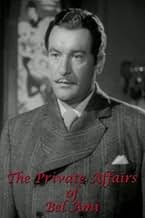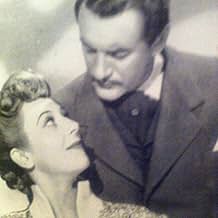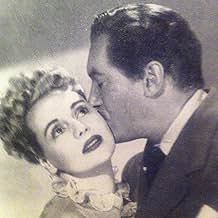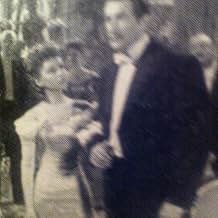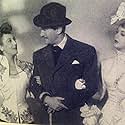Die Privataffären des Bel Ami
Originaltitel: The Private Affairs of Bel Ami
IMDb-BEWERTUNG
6,7/10
881
IHRE BEWERTUNG
Füge eine Handlung in deiner Sprache hinzuIn 1880, in Paris, chance brought together two former comrades-in-arms - Charles Forestier, who had become a journalist for "La Vie française" - and Georges Duroy, idle since leaving the six... Alles lesenIn 1880, in Paris, chance brought together two former comrades-in-arms - Charles Forestier, who had become a journalist for "La Vie française" - and Georges Duroy, idle since leaving the sixth regiment of hussars.In 1880, in Paris, chance brought together two former comrades-in-arms - Charles Forestier, who had become a journalist for "La Vie française" - and Georges Duroy, idle since leaving the sixth regiment of hussars.
- Regie
- Drehbuch
- Hauptbesetzung
Susan Douglas Rubes
- Suzanne Walter
- (as Susan Douglas)
Empfohlene Bewertungen
an adaptation. and a great cast. perfect choice for Georges Duroy character. a subtle, precise, impressive George Sanders in one of his magnificent roles. so, the key is not manner to adapted the novel of Maupassant but the art of each actor. because this movie is scene for a lot of stars. the story is old but the play is new. the novel is French and the science of details and nuances makes this American movie fruit of French cinema. the tale of Bel Ami is, in great measure, grace of Sanders and his partners, slice of Dorian Gray. it is not a masterpiece but it is a very interesting lesson. to define a world, to discover a book, to escape from Nick Ormerod last adaptation spell. a film as old yellow picture. good beginning to visit a world, to joy with drops of old fashion cinema style, to rediscover few crust of emotions and reflection to our small and bleak world.
Albert Lewin's reputation rests almost entirely on two films, "The Picture of Dorian Gray" and "Pandora and the Flying Dutchman" but his masterpiece must surely be the little known and little seen "The Private Affairs of Bel Ami" from the novel by Guy De Maupassant. It is, of course, a very witty portrait of a cad, beautifully played by George Sanders, but it is also a film of considerable psychological depth and one of the most adult and intelligent American pictures of the forties with not a trace of the camp usually associated with the director.
Rather we get an incisive picture of a period and that rarefied milieu of high Parisian society, beautifully written by Lewin and superbly played by everyone. In particular Angela Lansbury is outstanding as the one woman Sanders might actually have feelings for. It's a great performance that should have made Lansbury a major Hollywood player rather than simply the great character actress she became. Even the usually wooden Warren William excels here. If any film cries out for a restoration it is this one.
Rather we get an incisive picture of a period and that rarefied milieu of high Parisian society, beautifully written by Lewin and superbly played by everyone. In particular Angela Lansbury is outstanding as the one woman Sanders might actually have feelings for. It's a great performance that should have made Lansbury a major Hollywood player rather than simply the great character actress she became. Even the usually wooden Warren William excels here. If any film cries out for a restoration it is this one.
The movie is is faithful to the novel for about 3/4 of its running time. A handsome, amoral rake cuts his way through the vain, naive, foppish,self centered denizens of Parisian society in the 1880s He is not that smart, but he is shrewd enough to get the money and affection he craves. We don't know where his appetites came from. De Maupassant created him primarily to show the appalling psychological weaknesses of French upper class society "Prety Boy", as he is called, wins and wins big.
Well, the morals code of 1947 would not permit this. A scoundrel thriving is as bad was a naked woman on screen in the 1940s. You couldn't show it! Thus, the entire last section of this movie is made to comply with the code, and it plays out a story of how "Pretty Boy"'s primary victim thwarts his schemes and gets even. She gets even Big.
While I am happy to see the rat get his, this ending undermines the main point of the novel. It also doesn't fit the first three quarters. Characters suddenly behave differently than they did previously with no description of how and why they changed.
Still, it is a literate and intelligent movie. Not many of this kind of movie was made then, and even fewer are made today It is well played. George Sanders is the perfect cad. All the female actors do very well. Even since I first saw Ann Dvorak when I was six or seven, I have had a crush on her all these many decades, so it was good to see her.
Well worth the time for intelligent viewers...and those seniors who love Ann Dvorak!!
Well, the morals code of 1947 would not permit this. A scoundrel thriving is as bad was a naked woman on screen in the 1940s. You couldn't show it! Thus, the entire last section of this movie is made to comply with the code, and it plays out a story of how "Pretty Boy"'s primary victim thwarts his schemes and gets even. She gets even Big.
While I am happy to see the rat get his, this ending undermines the main point of the novel. It also doesn't fit the first three quarters. Characters suddenly behave differently than they did previously with no description of how and why they changed.
Still, it is a literate and intelligent movie. Not many of this kind of movie was made then, and even fewer are made today It is well played. George Sanders is the perfect cad. All the female actors do very well. Even since I first saw Ann Dvorak when I was six or seven, I have had a crush on her all these many decades, so it was good to see her.
Well worth the time for intelligent viewers...and those seniors who love Ann Dvorak!!
In the 1880's, a handsome rake schemes his way to the top of French society leaving a trail of exploited women in his wake.
I was about to slam Sanders' performance as a wooden one-note. Note how in the many close-ups his expression rarely changes, conveying little or no emotion, regardless the situation. Then it occurred to me. That's exactly right for such a heartless egotist as Duroy. In fact, he feels no emotion. Instead he's a walking calculator in the way he uses people. In place of warmth or animated charm, he seduces women with a strongly masculine presence and complete self-assurance, which Sanders conveys, in spades. Note too, how in the dueling scene, Duroy looks on impassively while his opponent musters strength to shoot him. Now a lack of emotion while staring death in the face is either evidence of an iron will or a simple lack of feeling. Of course, as an actor, Sanders can emote subtly or otherwise when called upon, as his lengthy career shows. So I figure his impassive manner in this movie is intended to define Duroy's character, and is not a deficiency on either the actor's or director's part.
Anyway, the movie itself amounts to a triumph of parlor room refinement. I especially like Lansbury. Her baby-face Clotilde provides enough meaningful emotion to engage the audience in ways that Duroy does not. In fact, the actresses, including a poignant Marie Wilson, are all well cast. Still, pairing the 40-year old Sanders with a girlish Douglas, half his age, amounts to a real stretch. But catch some of those parlor room sets that are doozies. The one with the checkered floor and striped wall had me cleaning my glasses. Overall, it's an oddly affecting morality play, with a style and taste that make even the painted backdrops somehow appropriate. Too bad this was the great Warren William's (Laroche) last movie. In terms of a commanding presence, he and Sanders belong together, as William's pre-Code films abundantly show. Nonetheless, this is one of the few features of the time to make a thoroughly dislikable character the central figure. And that took some guts. No wonder the film was an independent production.
I was about to slam Sanders' performance as a wooden one-note. Note how in the many close-ups his expression rarely changes, conveying little or no emotion, regardless the situation. Then it occurred to me. That's exactly right for such a heartless egotist as Duroy. In fact, he feels no emotion. Instead he's a walking calculator in the way he uses people. In place of warmth or animated charm, he seduces women with a strongly masculine presence and complete self-assurance, which Sanders conveys, in spades. Note too, how in the dueling scene, Duroy looks on impassively while his opponent musters strength to shoot him. Now a lack of emotion while staring death in the face is either evidence of an iron will or a simple lack of feeling. Of course, as an actor, Sanders can emote subtly or otherwise when called upon, as his lengthy career shows. So I figure his impassive manner in this movie is intended to define Duroy's character, and is not a deficiency on either the actor's or director's part.
Anyway, the movie itself amounts to a triumph of parlor room refinement. I especially like Lansbury. Her baby-face Clotilde provides enough meaningful emotion to engage the audience in ways that Duroy does not. In fact, the actresses, including a poignant Marie Wilson, are all well cast. Still, pairing the 40-year old Sanders with a girlish Douglas, half his age, amounts to a real stretch. But catch some of those parlor room sets that are doozies. The one with the checkered floor and striped wall had me cleaning my glasses. Overall, it's an oddly affecting morality play, with a style and taste that make even the painted backdrops somehow appropriate. Too bad this was the great Warren William's (Laroche) last movie. In terms of a commanding presence, he and Sanders belong together, as William's pre-Code films abundantly show. Nonetheless, this is one of the few features of the time to make a thoroughly dislikable character the central figure. And that took some guts. No wonder the film was an independent production.
Maupaussant's roaring tale of the rise of Duroy is tamed slightly in this version, with George Sanders bumbling rather scheming his way to the top. It's let down by some poor production values, although the dueling scene at the end is well handled. Worth watching for the shocking view of 'The Temptation of St Anthony' in ultra-modern colour (about three quarters the way through) alone.
Wusstest du schon
- WissenswertesThe producers held a contest for artists to create a painting about the temptation of Saint Anthony for use in this movie. The artists were paid five hundred dollars each and got to keep their paintings after the pictures toured the U.S. and Britain during 1946 and 1947. Although Max Ernst won the contest (receiving an extra two thousand five hundred dollars) and got his painting on-screen, Salvador Dalí's contribution (featuring a parade of spider-legged elephants tormenting the saint) became better known. The other artists who submitted paintings are Leonora Carrington, Ivan Le Lorraine Albright, Stanley Spencer, Eugene Berman, Paul Delvaux, Louis Guglielmi, Horace Pippin and Abraham Rattner. Artist Leonor Fini was also invited to contribute, but she didn't produce a painting.
- PatzerAt 9', a piano player and a violin player are doing a number. We hear a vibrato on the violin, but the left fingers of the player are not moving at all.
- Zitate
Georges Duroy: [dying] I have been scratched by an old cat.
- Crazy CreditsOpening credits: "This is the history of a scoundrel. The time is 1880 and the place is Paris."
- VerbindungenReferenced in Inglourious Basterds (2009)
- SoundtracksMy Bel Ami
by Jack Lawrence and Irving Drutman
Top-Auswahl
Melde dich zum Bewerten an und greife auf die Watchlist für personalisierte Empfehlungen zu.
- How long is The Private Affairs of Bel Ami?Powered by Alexa
Details
- Erscheinungsdatum
- Herkunftsland
- Sprache
- Auch bekannt als
- Bel Ami
- Drehorte
- Produktionsfirma
- Weitere beteiligte Unternehmen bei IMDbPro anzeigen
- Laufzeit
- 1 Std. 52 Min.(112 min)
- Farbe
- Seitenverhältnis
- 1.37 : 1
Zu dieser Seite beitragen
Bearbeitung vorschlagen oder fehlenden Inhalt hinzufügen

